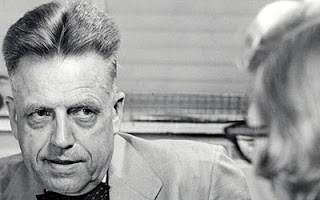I think every married couple should read Richard Baxter's advice on maintaining conjugal love. I've shared Baxter's wisdom on the subject here, but what I particularly like is where he says to husbands:
Take more notice of the good, that is in your wives, than of the evil. Let not the observation of their faults make you forget or overlook their virtues. Love is kindled by the sight of love or goodness.
Make not infirmities to seem odious faults, but excuse them as far as lawfully you may, by considering the frailty of the sex, and of their tempers, and considering also your own infirmities, and how much your wives must bear with you.
Stir up that most in them into exercise which is best, and stir not up that which is evil; and then the good will most appear, and the evil will be as buried, and you will more easily maintain your love. There is some uncleanness in the best on earth; and if you will be daily stirring in the filth, no wonder if you have the annoyance; and for that you may thank yourselves: draw out the fragrancy of that which is good and delectable in them, and do not by your own imprudence or peevishness stir up the worst, and then you shall find that even your faulty wives will appear more amiable to you.
Overcome them with love; and then whatever they are in themselves, they will be loving to you, and consequently lovely. Love will cause love, as fire kindleth fire. A good husband is the best means to make a good and loving wife. Make them not froward by your froward carriage, and then say, we cannot love them.
Give them examples of amiableness in yourselves; set them the pattern of a prudent, lowly, loving, meek, self-denying, patient, harmless, holy, heavenly life. Try this a while, and see whether it will not shame them from their faults, and make them walk more amiably themselves.
To read more of Baxter's advice, see 'Maintaining Conjugal Love.' To read about Baxter's remarkable life, order my book Saints and Scoundrels.








